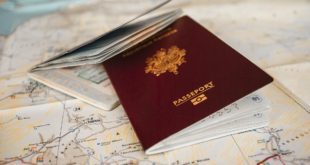Traveling with a baby is definitely something to look forward to, but something that gives anxiety and worry as well. Imagine lugging heavy, bulky bags with a child in tow—this can really be a challenge. But being a parent to a small child does not have to stop parents or the whole family from flying as there are ways on how to travel with a small child and keep the entire flight smooth-flowing.

Tips For Baby’s First Flight
The challenge of traveling with a baby depends on the little one’s age and stage. For instance, a baby that is three months or younger is considered a newborn and has different sets of demands from a baby that is already seven to eight months old. Newborn babies are rather easy to manage as they are not that active yet and mostly just sleep and eat the entire time. One of the biggest challenges when traveling with a newborn is feeding time. They get hungry every so often that milk, may it be formula or breast milk, should always be ready. The next big challenge is diaper change. Since babies these age feed in frequent manners, their poo poo time come in short intervals as well.

Flying with an infant, a baby aged 3-6 months, is different from flying with a newborn. A baby of this stage is usually alert and upbeat, but what is good about it is that their actions are predictable and parents can easily detect what the baby needs. An infant is rather easy to manage as she gets easily pacified with just a rock of the infant carrier or with the soothing sound of her favorite musical toy. Infants love to either play or sleep and these activities keep the baby’s attention away from the flying blues.

When traveling with a baby, take note of the following tips and suggestions coming from parents who have had several experiences traveling with a very small child:
- Be flexible: It is the case of parents adjusting to what the baby wants and needs, and not the other way around. With this in mind, parents must be flexible in their itinerary and schedule and must have a fall-back plan just in case the original plans do not work out.
- Be simple: Very small children easily get bored, distracted, and tired. Therefore, an itinerary that is simple does not just avoid the child from getting overwhelmed of what is happening around her, it also makes the plan for the day achievable.
- Choose a family-friendly destination: Too much noise and happening may over stimulate the baby. A place that is laid-back and relaxed, such as a less-crowded beach or a family-oriented resort, is very ideal if there is a baby in tow.
- Bring food and drinks: Travelling may be fun for adults, but for babies, this could be tiring and stressful. When they get hungry or thirsty, food and drinks must be readily-available to stop their whines and demands at once.
 Tourist Destinations World Travel Guides
Tourist Destinations World Travel Guides


